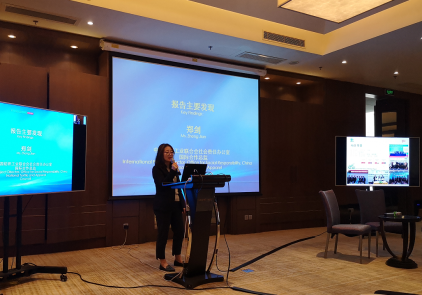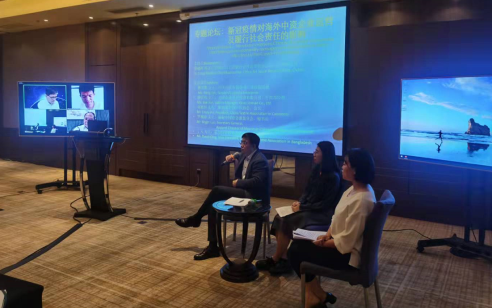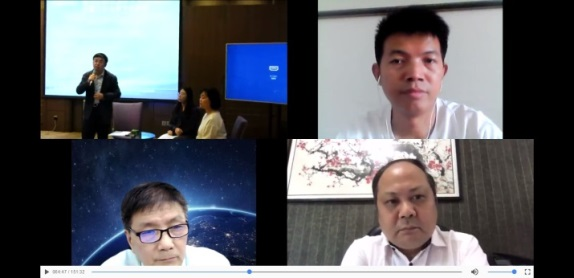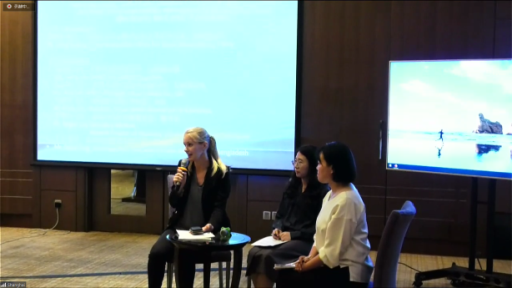On the afternoon of October 15, 2021, the project investigation report "The Impact of the COVID-19 Epidemic on the Operation and Social Responsibility of Overseas Chinese Textile and Garment Enterprises' jointly implemented by the Social Responsibility Office of China National Textile and Apparel Council and the German Institute for International Cooperation (GIZ) was released. will be held in Shanghai. It is reported that this is the first industry research in my country to pay attention to and study the impact of the COVID-19 epidemic on overseas investment.
At the beginning of 2020, the COVID-19 epidemic continued to impact the economies of various countries, and Chinese-invested textile and garment enterprises in Myanmar, Cambodia, Vietnam, and Bangladesh were also hit by the COVID-19 epidemic to varying degrees. In this context, the Social Responsibility Office of China National Textile and Apparel Council (CNTAC) and the German Agency for International Cooperation (GIZ) jointly launched a research project to understand the impact of the COVID-19 epidemic on the social responsibility of overseas Chinese textile and garment enterprises. impact, in-depth understanding of the challenges caused by the COVID-19 epidemic to enterprise operations, and understand the demands of enterprises to various stakeholders.
The responsible office of China Textile Federation will carry out this research work from January to July 2021. 51 Chinese-funded textile and garment enterprises and 312 employees of Chinese-funded textile and garment enterprises participated in the questionnaire survey, and more than 30 enterprises participated in the "headquarters interview" and symposium carried out by the project team. The survey shows that the COVID-19 epidemic has caused certain difficulties to the production and sales of enterprises. In the face of the impact of the epidemic, overseas Chinese textile and garment enterprises have adopted various epidemic prevention and control measures in accordance with the epidemic prevention and control requirements of local government departments. Actively undertake social responsibilities and demonstrate a strong sense of social responsibility and responsibility. At the same time, the COVID-19 epidemic has also brought huge challenges to overseas Chinese textile and garment enterprises, and enterprises have clear demands to customers, local governments, local industry associations and China Textile Federation. In the long run, most companies believe that the prospect of overseas investment and operation is optimistic.
At the project conference held on October 15, Ms. Yan Yan, Director of the Social Responsibility Office of China National Textile and Apparel Council, Deputy Director of China Textile Information Center, and the German International Cooperation Agency (GIZ) "Cultivate and promote sustainable business in the Asian garment industry. and Responsible Industry Practice” (FABRIC), Mr. Marc Beckmann, Project Director, delivered a speech on behalf of the organizers. Director Yan pointed out that under the epidemic situation, textile and garment enterprises should pay special attention to improving quality and efficiency, technological innovation and "people-oriented" in their strategic planning; Well gather the strength of employees and overcome difficulties with the enterprise. Mr. Marc Beckmann, who was far away from Cambodia, attended the meeting online. He spoke highly of the long-term cooperation between the GIZ FABRIC project and the China Textile Association, as well as its active contribution to promoting the construction of a responsible textile supply chain cooperation and exchange platform.

Subsequently, Ms. Zheng Jian, Director of International Projects of China Textile Federation, introduced the main findings of the report, including research background and methods, sample overview, the impact of the COVID-19 epidemic on the operation of Chinese-funded textile enterprises in Southeast Asia, epidemic prevention measures and the impact on employees etc., and summarizes the main report conclusions and challenges faced by enterprises and demands for different stakeholders.

In the forum session, the host, Dr. Liang Xiaohui, chief researcher of the China Textile Federation, and leaders from overseas investment companies and the Chinese Textile and Garment Merchants Associations in Cambodia, Bangladesh and Myanmar jointly discussed "the impact of the COVID-19 epidemic on the operation and implementation of overseas Chinese enterprises." The impact of social responsibility". Ms. Heng Zeli, Senior Vice President of Handa Enterprises, introduced the operation of the company's overseas factories. She admitted that the epidemic had a huge impact on the group's comprehensive investment plan, and the cancellation of customer orders also greatly affected the company's revenue. The company's strategy to adjust its layout in a timely manner, the normalized management of epidemic prevention, and the manpower policy of "no layoffs" have all played a positive role, enabling companies to quickly recover from the epidemic.
Ms. Xue Jiali, Manager of Administration Department of Wuxi Jinmao Foreign Trade Co., Ltd., introduced the company's operation in China and East Africa. The factory in East Africa has been suspended for 3-4 months due to the epidemic, but the company still pays workers full wages to ensure their livelihood, which reflects the company's strong sense of social responsibility. In the face of the epidemic, the company also resolutely adjusted its product layout, actively resumed production, and used digital technology to deepen and broaden its communication with customers, and strive to minimize the impact of the epidemic.

Representatives of overseas Chinese business associations also shared the development of local industries in the epidemic and the work organized by the organization to fight the epidemic. Mr. He Enjia, President of Cambodia China Textile Association, pointed out that the current epidemic prevention situation in Cambodia has stabilized, and the business associations of Chinese-funded enterprises in Cambodia have carried out a lot of work to help enterprises tide over the difficulties in the epidemic. He also recalled that the gender equality training carried out by the association and the China Textile Federation in 2018 had a positive impact on enterprises. During this epidemic, the association specifically asked Chinese-funded factories to protect the health and safety of pregnant female workers by adopting paid leave and other forms. protection, this initiative has received a positive response from businesses.

Mr. Luo Muzhen, Secretary General of the Garment Branch of the Myanmar Chinese Chamber of Commerce, believes that the biggest impact of the epidemic on Chinese-funded enterprises in Myanmar is the outflow of orders, and the later political turmoil seems to have a greater impact on enterprises. Industry organisations such as the Textile Branch of the Myanmar China Chamber of Commerce and the Myanmar Garment Manufacturers Association (MGMA) are working together to engage in dialogue with brands to reduce the negative impact of political factors on the industry.
Mr. Ding Tian, vice president of the Bangladesh Overseas Chinese Federation, pointed out that the epidemic in 2020 will have a huge impact on Bangladesh's clothing exports, causing the export volume to drop by at least 18%. However, with the stabilization of the epidemic, the number of exports in 2021 will continue to grow, and exports are expected to rise by 20% next year. During the epidemic, the Chinese Association of Bangladesh also actively organized donations and donations to support the compatriots in Bangladesh to fight the epidemic together.

During the interactive session, Ms. Alexandra Behns, Regional Cooperation Coordinator and Head of China of the German Agency for International Cooperation (GIZ) "Cultivating and Promoting Sustainable Business and Responsible Industry Practices in the Asian Garment Industry" (FABRIC), spoke with online and online The participants in the next session conducted a question-and-answer session, and discussed with the forum guests how to maintain sustainable development during the epidemic, what resilience the crisis has brought to the company, how to carry out customer evaluation strategies, and how the local Chinese business associations can promote corporate social responsibility work. In-depth discussions took place.
More than 120 representatives from textile and garment enterprises, industry organizations, international institutions, brand owners, non-governmental organizations, academic institutions, etc. attended the conference online and offline.
